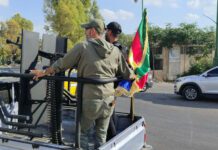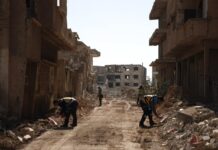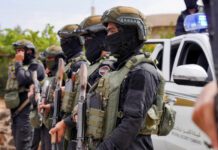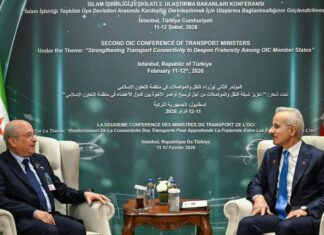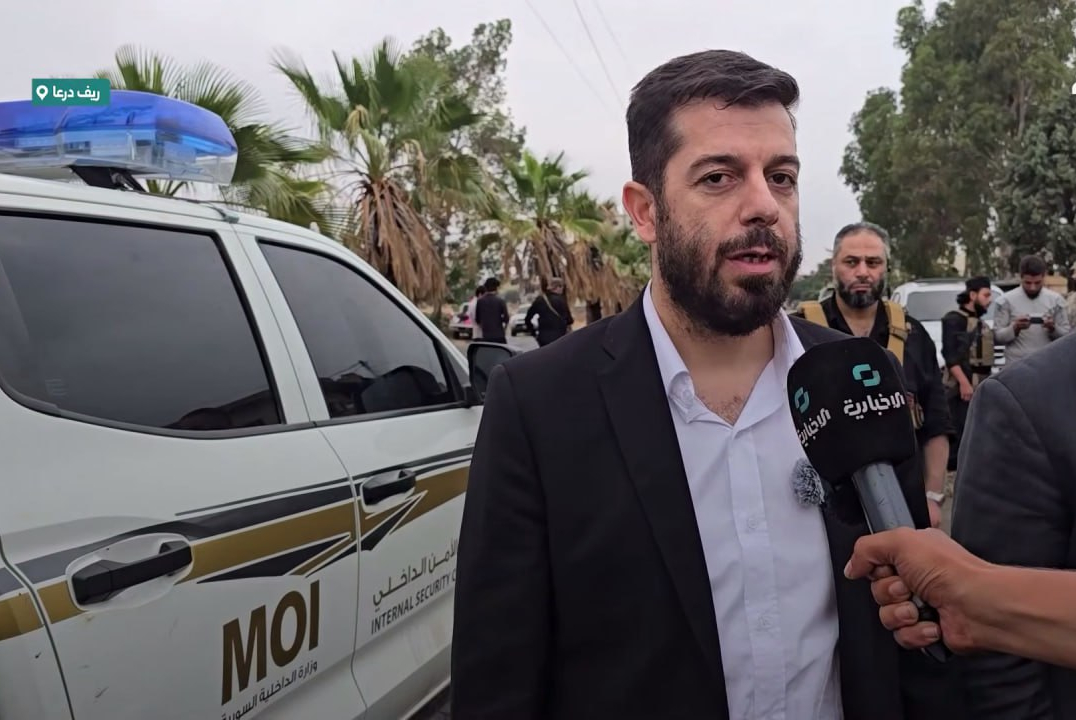
As tensions continue in Syria’s southern Suwayda province, government officials and community leaders are calling for unity, dialogue and restraint. But their efforts face persistent obstruction from Israeli-backed Druze figure Sheikh Hikmat al-Hijri, whose militia remains a destabilizing force amid a fragile ceasefire and the displacement of hundreds of civilians.
Recently, violence between armed groups aligned with al-Hijri and Bedouin tribes led to the forced evacuation of nearly 300 of 1,500 people from Suwayda to the Daraa countryside in the first evacuation. Syrian Internal Security Forces secured the evacuation, marking a needed de-escalation move in the region.
A National Strategy to Heal and Rebuild
Syria’s Ministry of Information has emphasized that the Suwayda crisis must be resolved through coordinated action grounded in national unity. “The state is committed to preventing fragmentation and safeguarding all citizens equally,” Minister Hamza al-Mustafa said. He noted that humanitarian aid was delivered and that community-based efforts were underway to reduce tensions and isolate extremist rhetoric.
This stabilization push is part of a national strategy aiming to end the cycle of conflict and promote a political path forward. The government has called the current phase “a prelude to political and social solutions” maintaining Syria’s unity and preventing external exploitation of internal grievances.
Resistance to Calm From Al-Hijri
Despite the momentum toward reconciliation, Sheikh al-Hijri and his followers continue to reject any compromise. Political analyst Abdulrahman al-Hajj said al-Hijri’s militia “seeks to isolate Suwayda from the rest of Syria” and is leveraging humanitarian suffering to gain political ground.
Hajj described the group as comprised of “criminals and regime remnants” under foreign influence, accusing it of trying to transform the province into a bargaining chip for Israeli-aligned agendas. Hajj also stressed that al-Hijri’s faction does not represent the broader Druze community. “Just as the SDF does not represent all Kurds, the Hijri group does not speak for Suwayda,” he said.
Voices for Unity and De-escalation
In contrast to Hijri’s intransigence, other prominent Druze leaders have called for calm. Sheikh Laith al-Balous, head of the Men of Dignity movement, reiterated that his group has “never left the arena” and always prioritized civilian protection. “We only ask for a state of law and institutions,” he said, denouncing sectarian rhetoric and rejecting any foreign-backed attempts to sow division.
The head of the Supreme Council of Syrian Tribes and Clans, Mudar Hamad al-Asaad, echoed these sentiments, calling for inclusive dialogue and emphasizing that tribes had no intention of escalating tensions. He praised recent detainee releases as positive steps toward reconciliation.
Damascus Moves to Restore Order
The Syrian government remains focused on consolidating stability and resuming essential services in Suwayda. “We are breaking the cycle of tension and sectarian mobilization,” said Brig. Gen. al-Dalati. “The province is an integral part of the Syrian fabric, and our efforts aim to restore safety and national cohesion.”
The government’s stabilization plan indicates a strategic pivot toward reconstruction and the reinforcement of national institutions. As Syria attempts to move beyond years of war, Suwayda remains a critical test—one where dialogue, not militancy, must prevail.

